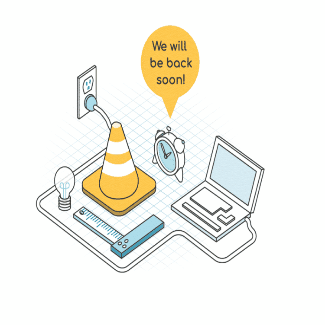Drupal 8 is the latest, greatest release of the world's most widely used enterprise web CMS. It's fast. Flexible.
Drupal 8 taps into the concentrated innovation from its open-source community.
You can drive value and streamline your work with new capabilities for successful digital experiences.
New Features
There are new features in Drupal 8 that aren't available in Drupal 7. also Drupal 8 includes a new release strategy. Here are some of the new features Drupal 8 has:
-
Export and Import all site configurations.
-
BigPipe caching mechanism, more advanced, more stable, better workflows and layout performance.
-
Layout Builder
-
Workspaces, improving the release content process
-
Faster installation
-
Object-oriented derived
-
and many more features
Cost Of Maintenance
Drupal 8’s new release cycle may increase, in some cases, short-term maintenance. That is, we may need to upgrade the site more often, involving more frequent release upgrades. However, the promise is that those new minor releases strategies should get relatively easier and painless as the new platform matures, and in exchange, they will provide a healthier/cleaner codebase.
Long-term maintenance, by contrast, avoids the huge cost of having to migrate from a major version to another, such as from Drupal 6 to Drupal 7, or Drupal 7 to Drupal 8.
Since the launch of Drupal 8, migrating to new major releases is not that difficult anymore. It also helps that modules are now compatible between immediate major versions (see point 8 for more information on this), so no more “I cannot upgrade to Drupal 9 because my favorite module is only in Drupal 8.” Chances are that the Drupal 8 module is already compatible with Drupal 9, it just will contain some deprecated --not breaking -- functions that should be addressed before the next major release, in this case, Drupal 10.
Security
All releases are covered but with more and more focus of the community efforts. Drupal 8 has all the attention and the community is focused on improving it, making it faster, more secure, and easier to use. Major new security flows are normally discovered in the current stable version.
Performance
Drupal 8 has a lot more functionality included in its core. This doesn’t mean that the core is more heavy, it just means that 96% of the sites in Drupal 7 were delivered with modules that now are included in Drupal 8.
Drupal brings big improvements in performance for the average site, especially when talking about authenticated users and not anonymous.
Drupal 8 has things like Bigpipe and authenticated users cache, which would make the effort of delivering the content to auth and anon users a breeze compared to what that meant in Drupal 7.
In general, if performance is a concern for you, you should have in mind that Drupal 8 comes with PHP7 support, which is much faster than previous versions; caching and loading speed has also been improved.
Easier Transition to the next big version (Drupal 9)
This is something some companies do to avoid big migration costs every few years, and it applies not just to Drupal, but to any other software package.
The Drupal 8 architecture and the new life cycle promise very smooth transitions from now on. Saving costs this way was a very valid argument before Drupal 8. Why migrate from Drupal 6 to Drupal 7 when you could wait, migrate directly to Drupal 8 and save one iteration of migrations and costs, right? no need anymore to wait, it will become much easier to upgrade.
As we have already mentioned, Drupal 8 has a new release cycle, with lots of new improvements in the current stable release, and with an interesting improvement on the way that major releases are included in the family. From Drupal 9, major versions will not be completely incompatible between them.
That means that your Drupal 8 modules will still work in Drupal 9. You’ll just get notices advising you to upgrade libraries, function calls, and anything else in your code that would make your module incompatible with a Drupal 10 version. But, theoretically, nothing that would break your module/site.


